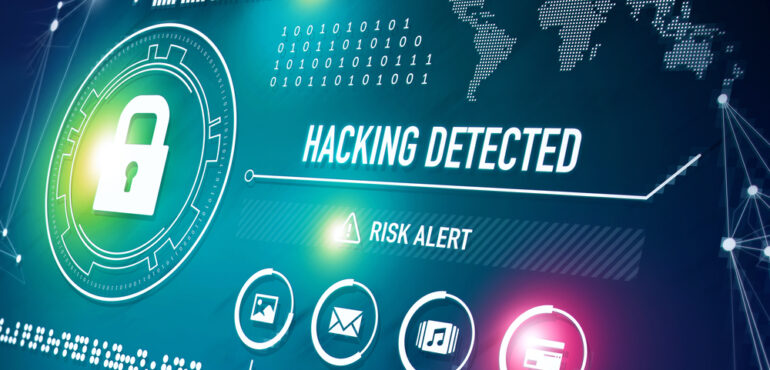How Unethical Hacking Could Compromise Your Business
Cybercriminals are on the rise, and they’re increasingly becoming more sophisticated. So, it is becoming more critical to protect your business from the damage hacking could inflict on your business, especially if you operate in the online space. As the risk of unethical hacking grows every day, it is wise to be aware of how unethical hackers can exploit your business.
Is My Business at Risk of Hacking?
Anyone or business that uses a device connected to the internet is susceptible to the threats posed by online predators. Such online criminals can infiltrate your network in various ways, including spam email, phishing, instant messages, or bogus websites to deliver dangerous malware to compromise your network security.
They can also directly access your website, computer, or other devices if you’re not protected by reliable antivirus software or firewall. When an individual with malicious intent gains access to your network, they can steal your business documents, trade secrets, or sensitive information relating to the employees and customers.
Ways in Which Hackers can Hurt Your Business
The following are types of attacks, signs to recognize them, and how you should respond in the event of an attack.
DDoS or DoS
Hackers can make your systems inaccessible using the distributed denial-of-service (DDoS) or denial-of-service (DoS). It is the most common form of a cyberattack where a hacker floods a system with multiple requests, preventing anyone from using it. In most cases, a hacker will use DDoS/DoS to take a service down rather than steal data or money. So, it is improbable that small business owners will be victims of this type of attack.
However, the signs are notable if you suffer from a DDoS/DoS attack. Your website or server slows down or becomes completely inaccessible. Check your access logs to confirm if you’re being flooded with external requests when that happens. Once you’ve ascertained that you’re being flooded, temporarily shut down eternal access to your servers as you set up a form of request authentication.
Malware Planting
A hacker can also gain access to your system and install malicious software. They often achieve this by exploiting a security vulnerability, but they can also plant malware through social engineering. A variety of malware planting exists – common examples include spyware used to report data to hackers and ransomware that holds your system hostage to extort money from you.
It isn’t easy to detect malware in your system unless it’s ransomware. However, it is advisable to perform regular security checks to increase the chances of noticing unwanted software in your system. also, keep your systems up-to-date and use reputable anti-malware software.
Crypto-jacking
It is an emerging form of an attack where a hacker sneaks software onto your system designed to mine cryptocurrency. They accomplish this by exploiting a security vulnerability or using backdoors.
Cryptojacking can be harmful to your business because it prevents you from accessing the full potential or power of your system since the mining program uses a significant portion of the power to mine crypto.
So, an obvious sign of cryptojacking is the performance of your system; your system will slow down. A wise step to take is to run an anti-malware program across the entire system to identify and eliminate the cryptojacking software.
Hijacking Social Media Accounts
Exploiting your social media accounts is another way hackers can harm your business. For example, your Instagram, Twitter, Facebook, and other social media accounts are susceptible to attacks. Typically, a hacker will hold your social media account hostage and demand ransom, but they can also completely alter the information to use them for marketing reasons. Either way, you lose money and customers.
Noticing a social media hack is simple, especially if you maintain a constant social media presence. Your account settings may change, or login attempts may be made. Once you notice such suspicious activities, change the password and enable 2FA.
Protect Your Business Against Malicious Attacks
Hackers can harm your business in a variety of ways. For example, computer hacking isn’t limited to stealing sensitive information, taking over control of your system, or for financial reasons. It can also extend to serious legal consequences if your clients’ data is compromised. So, as you increasingly expand your online operations, learn ways to identify and mitigate attacks.
Email us today or call 410-453-9300 for more information.
